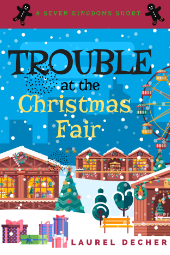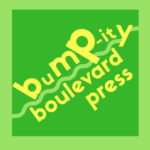
This is the second post in my Writing Gratitude Countdown. It’s my way of re-discovering the richness of the creative life. You can find the first post here: The Gift of Attention.
2. The Gift of Permission: the value of allowing yourself to create
Giving yourself permission to write is a way to counteract the doubts that come when we face a blank page:
Is it good? Am I a writer? Should I write more? Have I got a story here?
Permission is a cycle. It starts and ends with you, the writer, and in the middle are all kinds of readers.
a. You: Giving yourself permission to take time to learn, create, and revise.
The people who helped me most with permission are the ones closest to me. My husband takes on childcare so I can go to writing conferences or local writing groups. My children patiently traipse through research museums with me, take photos of settings, listen to garbled explanations, and put up with slapdash meals because the creativity was all used up by the time we got to food.
When other people make sacrifices for your dream, it’s the most tangible kind of permission there is. Thank you darling family!
b. Readers: Friends who read books agree that what you’ve written sounds like a “real” story.
At the beginning of the writing life, it’s hard to find other writers. The closest you can come are people who read a lot of books. They have taste and experience.
Sometimes the most encouraging people won’t be your “target audience” that is, they don’t read the kinds of books you’re trying to write. Don’t forget to value them.
Our dear neighbor Rebecca told me once that she didn’t like novels because she didn’t enjoy reading about the conflict between good and evil. But because she was a reader and valued books of all kinds, she still encouraged me to write. I still miss her.
Other friends have promised me that they will read or buy my book when it comes out even though their personal and professional interests are in totally different areas. It’s a special vote of confidence.
Librarians and teachers are a special category of experienced readers. I hope you have many special ones in your writing life!
c. Writers: Other people who write make it all seem normal.
My husband’s cousin is a talented furniture maker. He knows all kinds of people who makes things with their hands. (He put in our kitchen–Thanks, Matthias! We enjoy it!)
I’ve been writing for a while and I have so many writer friends I can’t list you all! It’s natural and wonderful. Thank you writer friends!
It’s fun to “talk shop” when you’re learning a new skill. Comparing tools, asking for opinions, and practicing getting the words down together can be a blast. An afternoon of writing prompts at a local coffee-shop, a day-long local workshop, or book festival can re-charge the writer batteries.
Watch your local newspaper and library bulletin boards to see what writers in your neighborhood are up to. You’ll be pleasantly surprised.
If you’re still looking for your own set of writers, you might enjoy: Six Tips to Find Your Online Writing Community and my round-up of middle grade writing communities: Writers Working Together: 8 Things We Can Do Better Together.
(More about my current critique partners is coming in a later post, so stay tuned!)
d. Authors: Published writers (or any writers ahead of us on the path) share insight into the whole writing and publishing path. Secret handshakes are also a kind of permission.
It’s always an honor when someone who does something well treats your early attempts with respect. Susan Gilbert-Collins is a published novelist (Starting from Scratch) and much more experienced writer than I am. I’m so very grateful for her generosity. She read my “trunk novel” graciously and I’ve lost count of the number of times she has read and praised my middle grade work-in-progress. Thanks a million, Susan! I’m looking forward to your next novel!!
Tracy Barrett is the author of 22 books, including Anna of Byzantium. and a brand-new The Song of Orpheus: the Greatest Greek Myths You’ve Never Heard. She’s also an active and generous member of SCBWI. (If you write children’s books and want to find like-minded people, visit the SCBWI website and extensive discussion forums.) Tracy gave me a personal critique at an SCBWI Germany & Austria workshop and I’m still referring to her notes. Thanks, Tracy!
PitchWars is a classic example of authors giving back to the writing community. Author mentors coach mentees through an extensive 3-month revision and then help them connect to a stunning list of literary agents. The generous Brenda Drake (Thief of Lies) has been organizing this amazing growth opportunity for writers since 2012. Thank you Brenda Drake!
Author Michelle Hauck (Grudging) runs several contests, including the New Agent Contest. I won the chance for a mentor to get my query and first 250 words in good shape. My mentor was the wickedly smart and amazingly tactful author, Wade Albert White (The Adventurer’s Guide to Successful Escapes). Thanks Michelle Hauck! Thanks Wade White!
e. Agents and Editors: People who can assess writing for its qualities and marketability.
The first time a real live agent or editor seriously listens to your pitch or reads your query while you’re sitting there is amazing. I’ll never forget watching the classy Meredith Bernstein consider my written pitch at a conference years ago or her hand-written comment on my manuscript: “You deserve time and attention.” Now maybe she writes that on other people’s manuscripts–I have no idea. She gave me written permission to write and to persevere. Thank you Meredith Bernstein!
f. Reviewers: People who assess published work for its qualities and marketability.
Here we’re back to experienced readers. I don’t have any reviewers (Yet ;)) but I review books I enjoy and try to nudge them towards friends who’ll also enjoy them.
g. Readers: People who want to read the next thing we write.
Seth Godin coined the term permission marketing and explains it better than I can. People who voluntarily give their e-mail addresses in exchange for finding out when your next book is coming out give you the ultimate permission.
They want to read things you haven’t even written yet. They are inviting you to write something new. Thank you so much to all my e-mail subscribers! It’s an honor to have each and every one of you!
h. You: Giving yourself permission to try something new.
And that brings you back to the blank page where you need to give yourself permission all over again.
Happy writing!
So that’s my second installment of gratitude for my writing journey. (You can find the first post here: The Gift of Attention.) More to come! If you’d like to share about people who gave you permission to write, please feel free to comment. I’d love to hear your story!
_______________
If you’d like to stay in touch, sign up for my Reader’s List. Once a month, I share new middle grade fiction, story-related freebies, and/or related blog posts. If it’s not your thing, you can unsubscribe at any time.
Save
Save
Save



